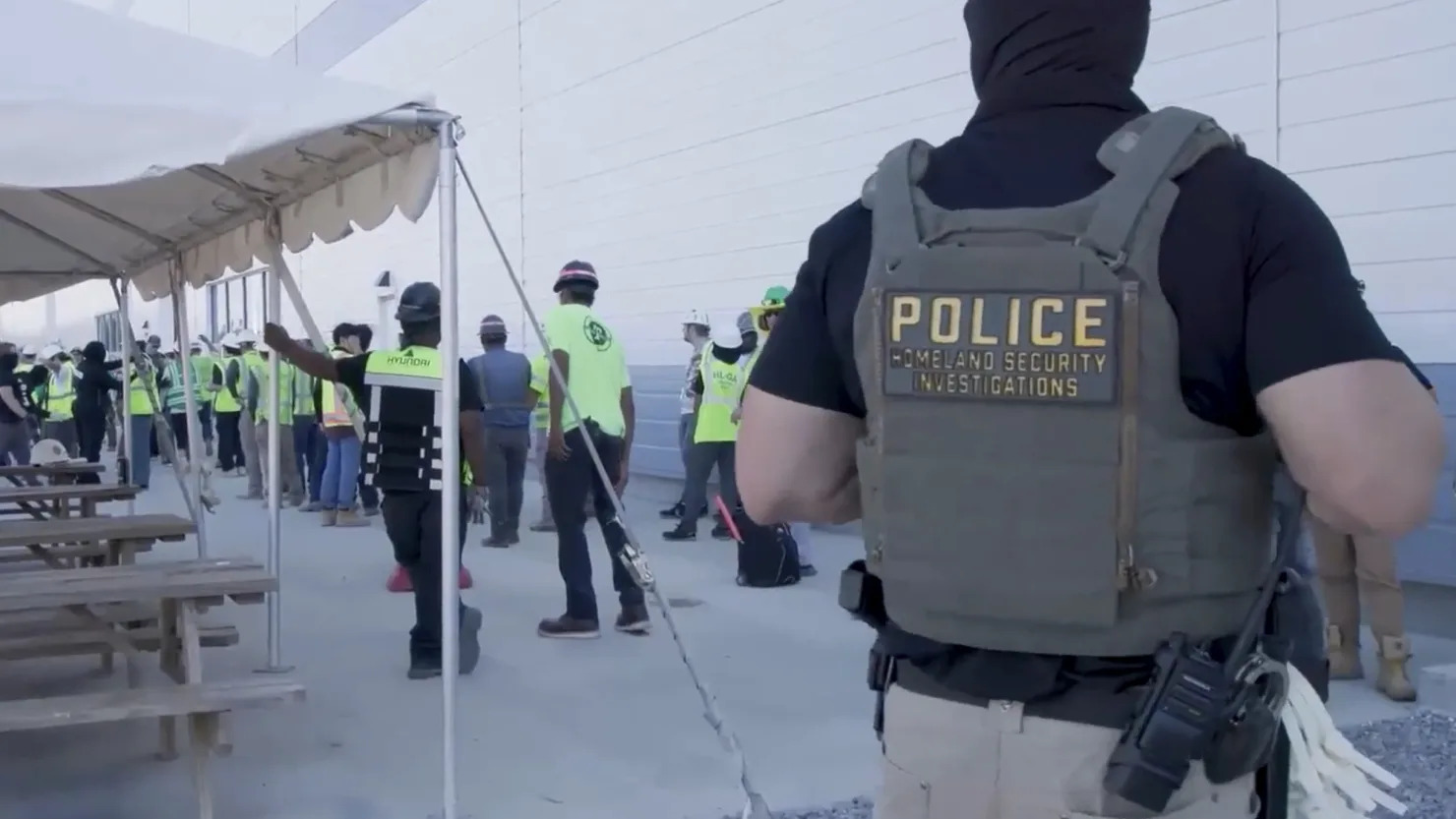South Korean Foreign Minister Cho Hyun, speaking at a parliamentary hearing on September 8 before his trip to the US, called the Immigration and Customs Enforcement (ICE) raid on a Hyundai and LG battery plant in Georgia a "very serious issue" that he hadn't anticipated.
During the September 4 raid, ICE agents and US law enforcement detained 457 people accused of working illegally, including over 300 South Korean citizens. Video released by ICE showed workers being handcuffed, shackled, and escorted onto prison transport vehicles.
Many South Korean lawmakers condemned the US raid during the parliamentary hearing. "If US authorities arrest hundreds of Koreans in this way, almost like a military operation, how can Korean companies continue to properly invest in the US in the future?", said Representative Cho Jeongsik of the ruling Democratic Party.
Representative Kim Gi-hyeon of the People Power Party described the raid as "unacceptable" and a "serious blow that will be difficult to heal" for South Korea.
Some lawmakers even called for the government to retaliate by investigating US citizens accused of working illegally in South Korea.
The raid on the Hyundai and LG battery plant is the latest in a series of operations by the Trump administration targeting undocumented immigrants. Many observers consider Georgia a symbol of economic cooperation between the two countries, with several major South Korean companies operating plants there and having future investment plans.
Many South Koreans remain shocked by the raid, which occurred after Seoul pledged USD 350 billion in investments to the US in July. South Korean President Lee Jae-myung also met with President Trump in Washington on 25/8.
"Launching a large-scale raid while calling for 'investment,' is this how Mr. Trump treats allies? This incident makes the South Korean people feel betrayed", commented South Korean newspaper Hankyoreh.
Kim Taewoo, former director of the Korea Institute for National Unification in Seoul, described Trump's approach to pressuring the South Korean government and harming its citizens as "very crude and unilateral." "Will South Korea easily forget this? In the long run, this is not good for US national interests," Kim said.
Chosun Ilbo, South Korea's largest newspaper, published an editorial on September 8 titled: "Fundamental questions have arisen: How does the US define 'alliance' and are investment interests guaranteed across administrations?".
 |
Hyundai battery plant workers are escorted out during the raid. Photo: ICE |
Paik Wooyeal, a professor at Yonsei University in Seoul, sees the raid as a manifestation of the conflict between the US goal of reviving manufacturing through foreign investment and the lack of a visa and immigration system to support such efforts.
According to Professor Paik, South Korean companies operating in the US may face "serious disruption" as they are forced to repatriate workers to resolve visa issues. This will also undermine US interests, but Trump is unlikely to make any concessions soon, Paik said.
Steven Schrank, a leading Homeland Security Investigations special agent in Georgia, said some of the workers arrested at the two plants had entered the US illegally, while others had entered legally but overstayed their visas or entered on visa waivers that prohibited work.
However, South Korean officials and experts expressed frustration over the US's "strict limitations" on H-1B or H-2B visas for skilled foreign workers and the Trump administration's slow response to Seoul's calls for expanding work visas for skilled workers from South Korea.
This has forced many South Korean companies investing in the US to rely on short-term tourist visas or the Electronic System for Travel Authorization to obtain the necessary workforce.
US Homeland Security Secretary Kristi Noem said on September 8 that over 300 South Korean citizens would be deported. It's unclear why she used the term "deportation" at a time when Seoul officials are trying to help these workers "voluntarily" return home, as deportation would put them at a disadvantage, such as restricting their entry into the US.
A chartered flight to pick up the South Korean citizens will arrive in the US as early as September 10.
"President Trump's message is very strong. US law will be enforced. We encourage all companies to hire American workers and bring people who want to abide by the law to our country," Noem said.
South Korea expressed regret over the raid, but experts believe Seoul will not take any significant retaliatory measures because its security depends on the US. The two countries also have close ties in other areas of cooperation.
Huyen Le (According to Yonhap, AFP, Military)












